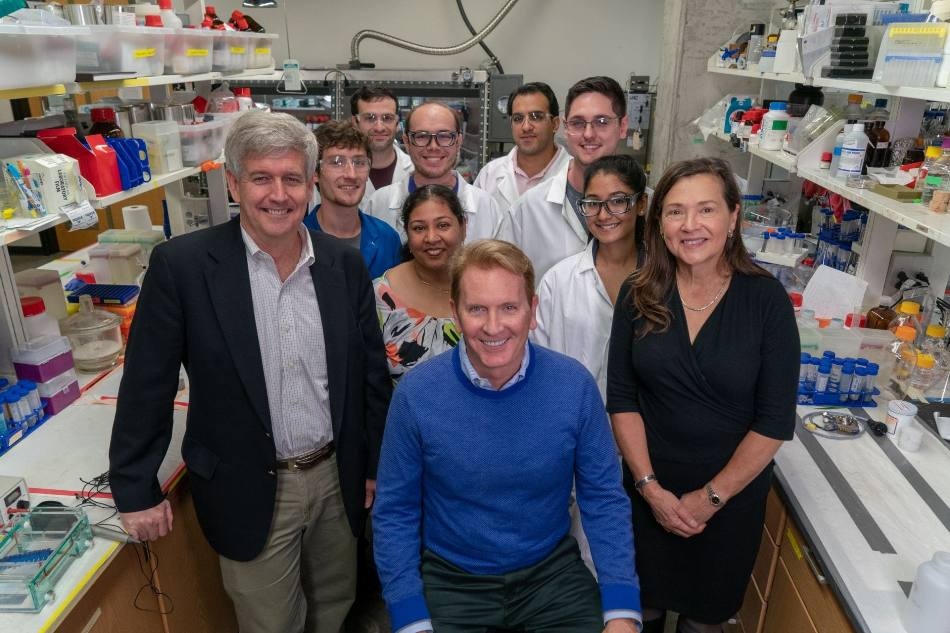Dec 18 2018
The outpouring of sympathy was profound when Frank Billingsley announced that he had prostate cancer. However, the chief meteorologist at KPRC-TV in Houston received an email that stood out among the mass of messages.
 Frank Billingsley visits the Halas lab before his treatment (Image credit: Rice University)
Frank Billingsley visits the Halas lab before his treatment (Image credit: Rice University)
“I got this email from David Jorden’s wife, Melanie,” Billingsley stated. “David Jorden is the CEO of Nanospectra,” a Houston-based firm that performs a clinical experiment of a nanoparticle-based cancer treatment devised at Rice University.
In the same city, Billingsley has been a famous television personality for nearly 30 years and had never heard of the treatment developed until now. His reaction: “Wow, this is really out there, but I would like to at least know about it.”
Perhaps it appeared “out there” to Billingsley, but it has been a long search for Naomi Halas, Rice’s Stanley C. Moore Professor of Electrical and Computer Engineering and professor of chemistry, bioengineering, physics and astronomy, and of materials science and nanoengineering and the director of Rice’s Smalley-Curl Institute.
As a part of clinical trials at the University of Texas Health Science Center in Houston, Billingsley received a nanoparticle infusion on November 27th, 2018 and subsequently underwent a laser ablation procedure on November 28th, 2018. An MRI performed the following week did not show any signs of cancer.
“The nanoparticles are special in that you can design a nanoparticle to absorb light at wavelengths that pass directly through the body,” stated Halas. “So if the particles are placed in a tumor site, you can irradiate them with light that penetrates through the body. And the nanoparticles will absorb the light, convert the light to heat and very gently they will induce hyperthermia and destroy just the tumor cells.”
According to trial organizers, it is much early to tell whether Billingsley’s cancer will return. By next year, he will be undergoing further tests.
Nanoparticles developed at Rice reach clinical trials for prostate cancer